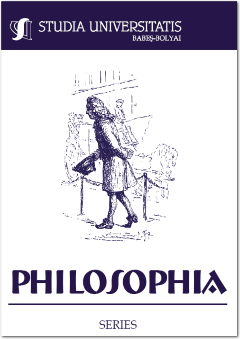IS RELIGIOSITY HELPFUL FOR PATIENTS WITH HEART FAILURE? IMPLICATIONS FOR MEDICAL ETHICS
IS RELIGIOSITY HELPFUL FOR PATIENTS WITH HEART FAILURE? IMPLICATIONS FOR MEDICAL ETHICS
Author(s): Anca-Daniela Farcaş, Laura-Elena Năstasă, Cristina-Aneta TîrhaşSubject(s): Philosophy
Published by: Studia Universitatis Babes-Bolyai
Keywords: coping; religion/spirituality; support; health care; medical ethics.
Summary/Abstract: The present study aims to underline the current discussions on the religiosity-health outcome relation, highlighting the tensions that may arise in the course of the medical practice on the following questions: a) Is religiosity itself an (independent) factor capable to affect the outcome of patients with heart failure, or is the association between religiosity and health benefits mediated by other social and psychological factors?; b) To what extent do religious beliefs conduct to illness avoidance or acceptance and to adequate treatment commitment, in other words those beliefs support or contradict the medical approach?; c) What measures on social policies and medical counselling level would be more effective and appropriate for the Romanian system?; d) In which of the following policy areas could the bioethical dimension be more flexible and efficiently integrated: the doctor-patient relationship, the steps of the medical act, the curative decision making and/or the long-term support of the patient? A large understanding and evaluation of the ethical and legal frame regarding the patient’s information, treatment and healthcare is required for the medical practitioners as long as the shared decision making between patient and clinician is one based on modern medical principles followed by clinicians.
Journal: Studia Universitatis Babes-Bolyai - Philosophia
- Issue Year: 63/2018
- Issue No: 2
- Page Range: 115-122
- Page Count: 8
- Language: English

